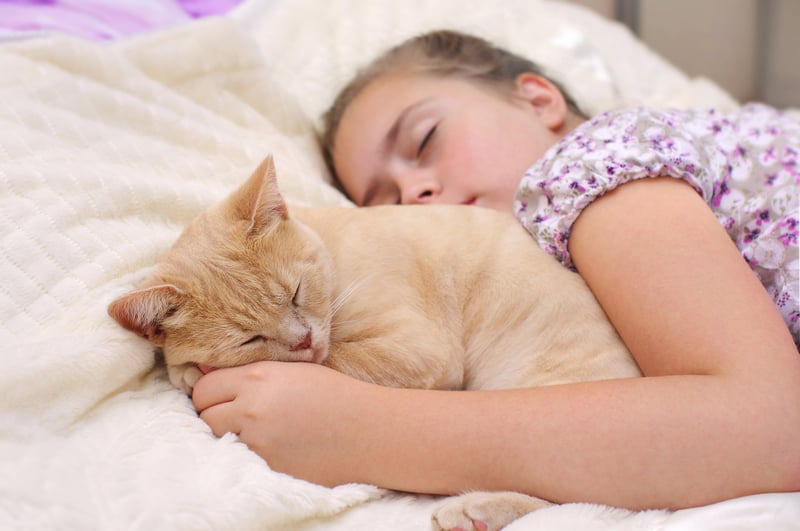Using the RefillRx mobile app? Then you will love our new, ENHANCED Sentry Drug Center mobile app.
Quickly request refills or login and manage your prescriptions on the go!
Available on both iTunes and Google Play.
Call or Visit for All of your Vaccination Needs!
Get Healthy!

- Cara Murez
- Posted March 30, 2023
Pets Could Help Prevent Food Allergies in Kids
While research has shown that having pets can lower the chances of respiratory allergies in children, a new study finds it might also reduce the risk of food allergies.
Japanese investigators found that young children exposed to dogs in the home were less likely to experience egg, milk and nut allergies, while those exposed to cats were less likely to be diagnosed with egg, wheat and soybean allergies.
Still, "pet exposure does not completely prevent food allergies,"noted first study author Dr. Hisao Okabe, from the Fukushima Regional Center for the Japan Environment and Children's Study and the department of pediatrics at Fukushima Medical University in Japan.
"All this study has shown is that it may reduce the risk of developing food allergies. In addition, the association between pet exposure and food allergies might differ, depending on the pet species and causative food,"Okabe added.
For the study, Okabe's team analyzed medical and self-reported data on more than 66,000 infants in Japan, and found that those exposed to indoor cats or dogs during pregnancy or early infancy had fewer food allergies, at least until the age of 3.
About 22% of those infants were exposed to these indoor pets. There was no significant difference for children exposed to outdoor dogs.
Why children with pets may have fewer food allergies wasn't determined in this study, but previous reports have suggested it could be due to the gut bacteria, endotoxins in the air or through the skin barrier, Okabe said.
The researchers decided to study this issue because mothers who had pets at home were concerned about the risk of allergic disease being fueled by the pets, Okabe noted.
"In terms of food allergies, pet exposure during fetal and early infancy may be good in some cases,"Okabe said. "We hope that this message will help alleviate some of the concerns about pet ownership."
The findings were published online March 29 in the journal PLOS ONE.
Dr. Dean Mitchell, an allergist and immunologist in private practice at Mitchell Medical Group in New York City, said he has seen a lot of studies over the years that have looked at pets and allergies.
Mitchell raised some other theories about what might cause allergies in children, such as taking antibiotics while pregnant or during infancy, which he feels strongly may have an impact. Another theory is that children who have older siblings may be less allergic because they're exposed to more viruses at a younger age.
However, the latest findings may not be reason enough to go out and get a dog or cat when thinking about having a baby.
"Every once in a while when these other studies pop up here and there, they're for me "¦ just too focused,"Mitchell said.
"I think the takeaway is, honestly, be very careful with the use of antibiotics. I know that's not mentioned there,"he said. "I think the other stuff you can't really control, and it's just not really practical or I think well-proven."
The study authors noted that recent research in South Africa found exposure to farm animals during fetal development or infancy decreased the risk of food allergies in a rural population.
Food allergies can reduce quality of life for children and their families, can create significant medical costs and come with the risk of anaphylaxis, which is a severe allergic reaction and can be fatal, the researchers said.
The study authors added that these results may help guide future research on food allergies.
"We hope that the preventive mechanism of food allergy caused by pet exposure will be clarified, and that this will contribute to new food allergy prevention and treatment strategies,"Okabe said.
More information
The American Academy of Pediatrics has more on food allergies in children.
SOURCES: Hisao Okabe, MD, Fukushima Regional Center for the Japan Environment and Children's Study, and department of pediatrics, School of Medicine, Fukushima Medical University, Japan; Dean Mitchell, MD, allergist and immunologist, Mitchell Medical Group, New York City; PLOS One, March 29, 2023, online
